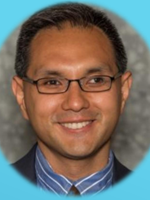主题:World Englishes and SLA: Establishing a Common Research Agenda
主讲人:Peter De Costa(密歇根州立大学应用语言学副教授,TESOL Quarterly联合主编)
时间:2019年6月26日(周三)上午9:30-11:00
地点:外语学院403会议室
使用语言:英语
内容摘要:
While earlier debates within World Englishes (Kachru, 1991) and SLA (Firth & Wagner, 1997) have established the need to look beyond native speakerism, calls to bring together the subfields of World Englishes and SLA (Jenkins, 2006; Schneider, 2012) have met with limited success. An interdisciplinary alliance between World Englishes, which includes English as a Lingua Franca (ELF) and English as an International Language (EIL), and SLA researchers would also be consistent with recent moves to bridge the gap between cognitive and social approaches to SLA (Hulstijnet al., 2014). In a similar vein, a crossing of the borderlands of World Englishes and SLA is made possible by several developments that have taken place over the last decade. First, both applied linguistic subfields have experienced a practice turn as seen within Global Englishes (Canagarajah, 2013; Park & Wee, 2015) and SLA (DeKeyser, 2007; Young and Astarita, 2013). Next, dynamicity and complexity have been examined in World Englishes (cf. Schneider’s [2014] Dynamic Model), ELF (Mauranen, 2012; Seidlhofer, 2011), interactionist approaches to SLA (Gass& Mackey, 2015), and usage-based linguistics (Ellis, 2015), all of which recognize the emergent nature of language. Third, scholars from both spheres of applied linguistics have advocated an expansion of their respective research agendas. Moving beyond instructed SLA settings toward naturalistic inquiry, Bayley and Tarone (2012) called for an investigation of the widest possible range of social settings and learner types. Relatedly, there has been a notable shift to explore the development of pedagogy for EIL (Matsuda, 2012) and ELF (Bayyurt, 2015). Working on the premise and promise of greater collaboration, this position paper argues and illustrates how a dialogue and a common research agenda can and should be established between World Englishes and SLA researchers in order to better account for the multilingual realities of language learners today (Ortega, 2015).
主讲人简介:

Peter De Costa (PhD) is an Associate Professor in the Department of Linguistics and Languages and the Department of Teacher Education at Michigan State University. He is the co-editor of TESOL Quarterly. His primary areas of research are identity and ideology in SLA. He is the author of The Power of Identity and Ideology in Language Learning (Springer, 2016). He also recently edited Ethics in Applied Linguistics Research (Routledge, 2016).
